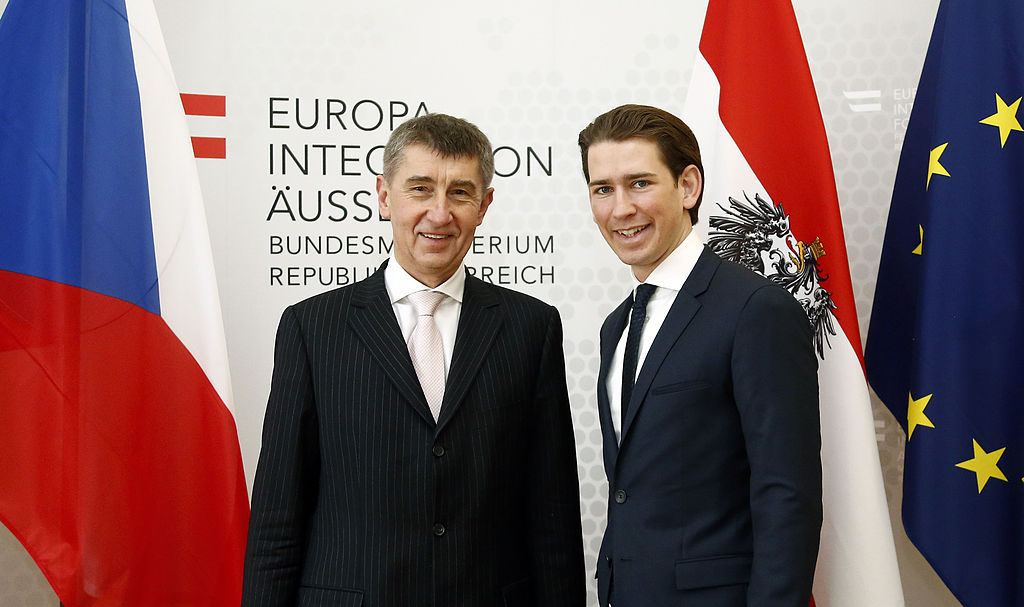|
In this mailing:
- Soeren Kern: The Czech Donald
Trump
- John R. Bolton: The Iran Deal
Isn't Worth Saving
- Amir Taheri: Kurdish Secession
and Mysteries of Identity
The
Czech Donald Trump
"I have stopped believing in
multiculturalism."
by Soeren Kern • October 8, 2017
at 5:00 am
- Andrej Babis, one of
the Czech Republic's wealthiest people, presents himself as a
non-ideological results-oriented reformer. He has pledged to
run the country like a business after years of what he calls
corrupt and inept management. He is demanding a return of
sovereignty from the European Union and rejects the euro.
- Babis's
anti-establishment party ANO (which stands for "Action of
Dissatisfied Citizens" and is also the Czech word for
"yes") is centrist, technocratic and pro-business.
ANO, which rejects political labels, has attracted voters from
both left and right, pulling support away from the established
parties.
- "The West
European politicians keep repeating that it is our duty to
comply with what the immigrants want because of their human
rights. But what about the human rights of the Germans or the
Hungarians? Why should the British accept that the wealth
which has been created by many generations of their ancestors,
should be consumed by people... who are a security risk and
whose desire it is not to integrate but to destroy European
culture?" — Andrej Babis, candidate for prime minister of
the Czech Republic.

Andrej
Babis (left), then Finance Minister of the Czech Republic, meets
with Austria's Foreign Minister Sebastian Kurz (right) on February
13, 2015. (Image source: Austrian Foreign Ministry)
A "politically incorrect" billionaire
businessman opposed to further EU integration is on track to become
the next prime minister of the Czech Republic.
Andrej Babis, a Slovak-born former finance minister
who has been sharply critical of German Chancellor Angela Merkel's
open-door migration policy, is leading the polls ahead of general
elections, set for October 20.
Babis, one of the country's wealthiest people,
presents himself as a non-ideological results-oriented reformer. He
has pledged to run the Czech Republic like a business after years
of what he calls corrupt and inept management. He is demanding a
return of sovereignty from the European Union and rejects the euro;
he argues that it would "be another issue that Brussels would
be meddling with." He has also said he plans to cut government
spending, stop people from "being parasites" in the
social welfare system, and fight for Czech interests abroad. Babis
is often referred to as "the Czech Donald Trump."
by John R. Bolton • October 8,
2017 at 4:30 am
Last month
at the United Nations General Assembly, President Donald Trump
lacerated the Iran nuclear deal as an "embarrassment,"
"one of the worst and most one-sided transactions the United
States has ever entered into." (Image source: The White House)
"Cut, and cut cleanly," Sen. Paul Laxalt
advised Ferdinand Marcos in 1986, urging the Philippine president
to resign and flee Manila because of widespread civil unrest. The
Nevada Republican, Ronald Reagan's best friend in Congress, knew
what his president wanted, and he made the point with customary
Western directness.
President Trump could profitably follow Mr. Laxalt's
advice today regarding Barack Obama's 2015 deal with Iran. The
ayatollahs are using Mr. Obama's handiwork to legitimize their
terrorist state, facilitate (and conceal) their continuing
nuclear-weapons and ballistic-missile programs, and acquire
valuable resources from gullible negotiating partners.
Mr. Trump's real decision is whether to fulfill his
campaign promise to extricate America from this strategic debacle.
Last month at the United Nations General Assembly, he lacerated the
deal as an "embarrassment," "one of the worst and
most one-sided transactions the United States has ever entered
into."
by Amir Taheri • October 8, 2017
at 4:00 am
(Image
source: Joaoleitao/Wikimedia Commons)
An old Arab adage asserts that there is always
something good in whatever happens. The secession referendum held
in the autonomous Kurdish region of Iraq is no exception. It has
added to tension in the region, awakened many old demons and
diverted attention from more urgent problems. At the same time, it
has also provided an opportunity to examine and debate some
important issues in a cold and clinical manner as opposed to the
inflammatory style current in our neck of the wood.
One such issue concerns the relationship between
ethnicity and nationality.
|































No comments:
Post a Comment